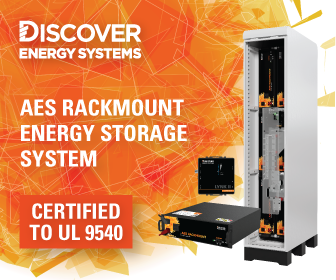Look into the Future at the f-cell on September 10 and 11: How Hydrogen Will Make the Transport Sector More Climate-Friendly
Fuel cell vehicles travel the roads in a climate-friendly manner, even over long distances. Until now, they've been largely overshadowed by the fully battery-powered electric cars from Tesla, etc. This will change in the next few years: Renowned organizations from industry and research are working intensively on mobility solutions based primarily on hydrogen. Especially when the range exceeds 250 kilometers, fuel cell vehicles have an advantage over battery cars. Experts from the Fraunhofer Institute for Solar Energy Systems ISE recently used new facts to make this point. A who ´s who of the international hydrogen and fuel cell industry will meet at the f-cell trade event on September 10 and 11, 2019, in Stuttgart to discuss the current situation and the future of this booming, climate-friendly technology.
In Germany, cars, buses and commercial vehicles are responsible for around 18 percent of carbon dioxide emissions. For this reason, climate protection can only succeed with a transport revolution. Fuel cell cars will make a significant contribution to this: Electric cars produce their own electricity by converting hydrogen or methanol into electricity. This is especially environmentally friendly when the hydrogen is produced using renewable sources. High acquisition costs are still impeding the switch to such vehicles. The filling station network in Germany is also still modest. There are currently 72 hydrogen filling stations able to refuel fuel cell vehicles. This will soon change: By the end of 2019, there should be 100, and by 2025, a total of 400 filling stations.
Battery and fuel cell vehicles complement each other
From the perspective of climate protection, purely battery-powered electric cars with a small battery and a limited range are the most environmentally friendly means of individual transportation by car. By contrast, for vehicles with a range of several hundred kilometres, fuel cells are more economical than batteries with regard to climate protection. It has been found that even in the worst case, a fuel cell variant of a car with a long range emits fewer greenhouse gases than a comparable battery-powered vehicle charged using the mix of energy from the German grid. This was the conclusion reached by researchers at the Fraunhofer ISE in Freiburg in July 2019. They performed a life cycle comparison of battery and fuel cell vehicles as part of a study commissioned by H2 Mobility Germany. The study's goal was to determine the greenhouse gas footprint of alternative drive concepts. Fraunhofer ISE will present information on the study, as well as results of other research, at the f-cell at booth 19 in the List room. It will also be included in the panel discussion "f-cell Talk: What drives our future," which will be held on September 10, at 4 p.m. as part of the f-cell conference. Moderated by Jürgen Pfeiffer, high-ranking representatives from industry and research will discuss the indispensable mix of alternative drives such as hydrogen, batteries and synthetic fuels required to achieve a long-term, effective reduction in greenhouse gas emissions.
The f-cell exhibitor e-mobil BW looks at raw materials for electric mobility. According to the state agency, the goal of sustainability, in regards to both raw material extraction and recycling for battery-powered electric and for fuel cell vehicles will determine the costs and future of the technologies. In a current study, e-mobil BW highlights solutions for the problem of raw materials for electromobility. Information will be available at booth 24 in the List room during f-cell.
Hands-on technology at the f-cell
Fuel cell cars that you can experience up close will also be at the f-cell: The Mercedes GLC F-Cell is the latest hydrogen-powered flagship from the Stuttgart-based automotive manufacturer. The SUV is a fuel cell plug-in hybrid with rechargeable battery. Once refueled with hydrogen, the Mercedes has a range of 430 kilometers. An integrated battery extends this by another 50 kilometers. The GLC can currently be rented by selected customers and partners. At the f-cell trade event in Stuttgart, visitors can see the car live.
In addition to hydrogen vehicles for private use, the technology also offers great opportunities for commercial and local passenger transport. The French bus manufacturer SAFRA will present its Businova bus concept at the f-cell at booth 18 in the List room. The vehicle has an electric motor that is fed by a powerful battery, which in turn gets its energy from a 30 kilowatt fuel cell. This means that the bus has a range of around 300 climate-friendly kilometers.
For the first time in Germany: 24-Hour Hydrogen Challenge
There will also be a 24-hour rally leading up to this year's f-cell: On Monday, September 9, the "24-Hour Hydrogen Challenge" will be held for the first time in Germany. The teams will start in Stuttgart and will head for various checkpoints within 24 hours on a self-chosen route across Germany. The winners of the 24-Hour Hydrogen Challenge will be announced at the f-cell evening event on Tuesday, September 10. This live demonstration is intended to raise public awareness of hydrogen and fuel cell technology in the automotive sector and to promote it.
Current information about f-cell, the exhibitors, the program and the speakers will be posted on LinkedIn https://www.linkedin.com/company/f-cell/ and Twitter https://twitter.com/fcell_Germany. The official hashtag is #fcell19.
f-cell | https://f-cell.de











